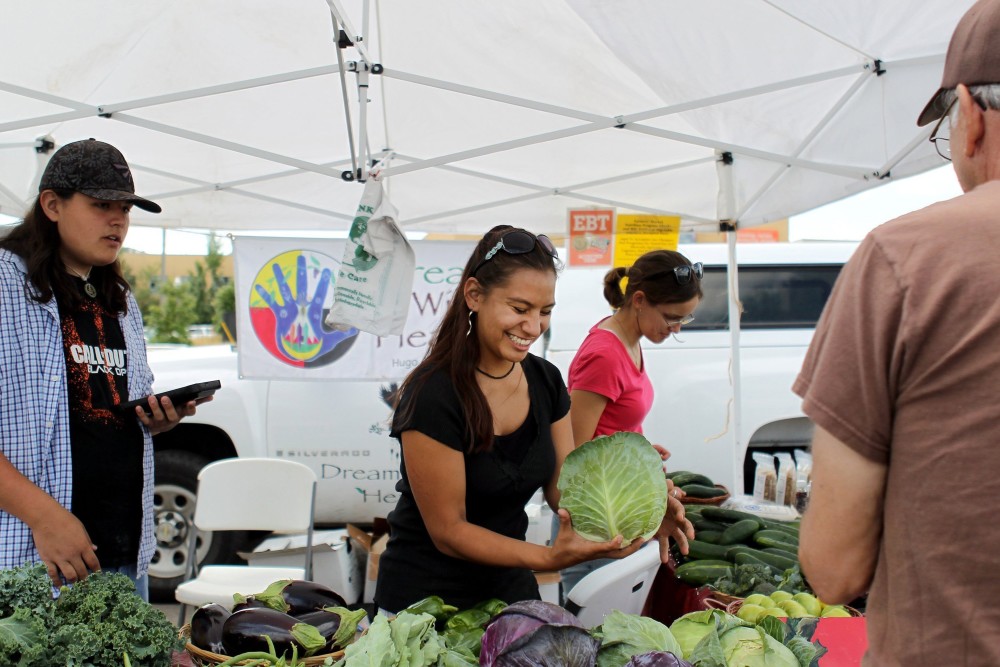By Zlati Meyer
Detroit Free Press.
Maybe you own a small local store and are looking to change your layout and buy equipment to start selling fresh produce and meats, instead of just nonperishable snack foods.
Or you’re a minor vegetable processor in Northern Michigan who buys root crops, like beets, carrots and potatoes, from area farmers and you want to start washing, slicing, parboiling and packaging the potatoes to deliver them to rural schools.
The Michigan Good Food Fund wants to hear from you.
It’s a new public-private partnership that wants to increase underprivileged communities’ access to fresh produce and meat, while at the same time, expanding business opportunities for entrepreneurs. The organization will make $250,000-plus loans to businesses all along the supply chain from farmers and food processors to distributors and grocery stores; funders expect it to grow to $30 million.
The Healthy Food Access Campaign report, commissioned by the Philadelphia-based Food Trust this year, found that more than 1.8 million Michiganders, including an estimated 300,000 children, live in lower-income communities with limited supermarket access. Those areas include rural parts of the state, like Hillsdale, Tuscola, Sanilac, Coldwater and Allegan, and urban hubs, like Detroit and Flint.
Michigan also has a 31.5% obesity rate for adults, according to the Centers for Disease Control
“Supporting this sort of enterprise really has the opportunity to transform communities across the state in many ways, providing greater access to nutritious food, which will improve the health of Michigan residents and drive economic development and job creation,” said president and CEO Oran Hesterman of the Ann Arbor-based national not-for-profit Fair Food Network, which is among the Michigan Good Food Fund’s partners. “We have a huge competitive advantage. Michigan is the second-most adverse agriculture in the United States in terms of the number of things we produce. We’ve got a huge benefit, because of climate and soil variation in the state … We’ve got opportunity and need.”
Michigan’s food and agriculture business is a $101.2-billion industry, according to the Michigan State University Product Center.
In addition to financing, the fund will help planning, marketing, operations, logistics and product design.
Program participants will be asked to keep track of nontraditional metrics, such as what percentage of their output is going to outlets in low-income communities, Hesterman explained.
An informational event about applicant eligibility and what sorts of financing and business assistance the fund offers is scheduled for Monday at Eastern Market’s Shed 5 10 a.m.-12 p.m. Another is planned for Traverse City on June 29; previous events were held earlier this month in Lansing and Grand Rapids.
“We’re set up for entrepreneurs in the early or expansion phase who might not have access to financing the large companies do,” Hesterman said. “It will be a self-sustaining fund over time… They’re loans that will be paid paid back and we can lend again.”
He added some money will be distributed as grants, which don’t have to be paid back, for projects like employee development and cash-flow projections. The program itself began with a $3-million Healthy Food Financing grant from the federal government.
The fund is modeled after similar programs in Pennsylvania, California, Illinois and Virginia.
“One of our core goals in the Michigan Good Food Fund is paying attention to racial and social equity in the food system,” Hesterman said. “As we put these funds to work, we’re putting them to work in a way that helps create greater diversity. When you think about getting healthier foods in underserved communities, often they’re communities of color. We’re paying attention to that part of racial equity. We’re also paying attention to who the entrepreneurs are and where the jobs are going to be.”
The Michigan Good Food Fund’s other core partners include the not-for-profit community development organization Capital Impact Partners, which manages the fund; the MSU Center for Regional Food Systems and the W.K. Kellogg Foundation.














































































































































































































































































































































































